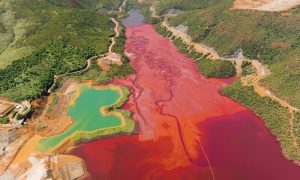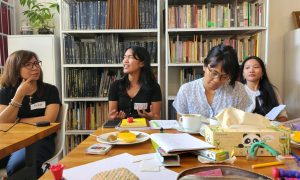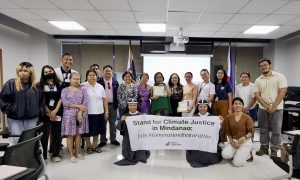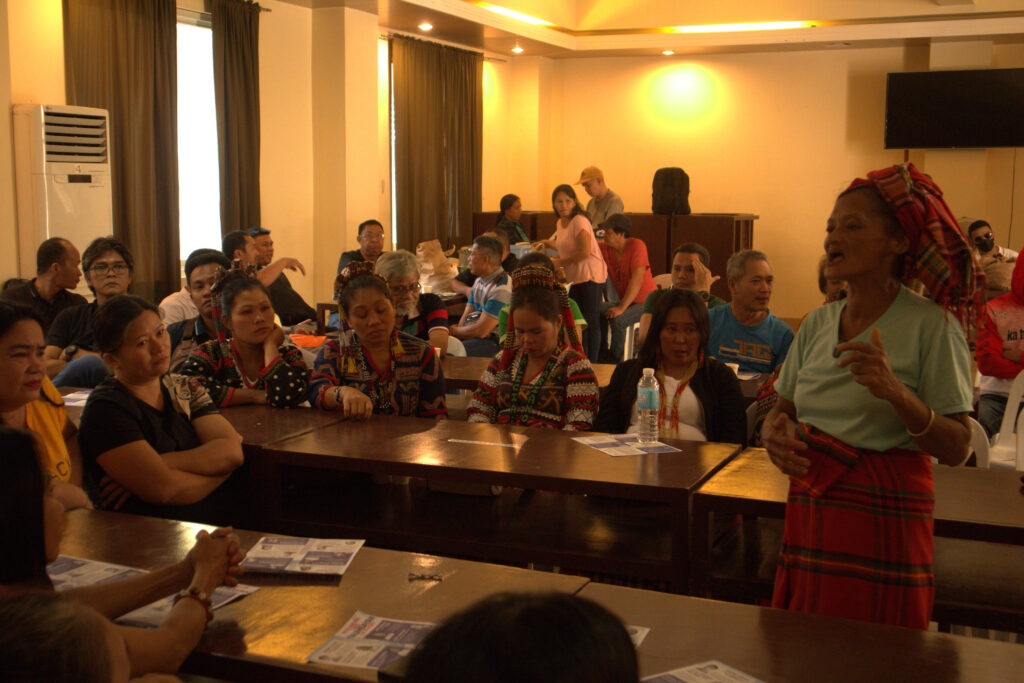
On September 15, 2024, the Diocese of Marbel, which covers the provinces of South Cotabato, Sarangani, and General Santos, issued a declaration of a climate emergency in these areas. Bishop Cerilo Casicas cited the ongoing environmental crisis in South Cotabato, stating that the ongoing mining activities, such as the Tampakan and Lake Sebu mining, and quarrying operations are putting the people at risk, especially their health and well-being.
Affected Lumad communities are doubly at risk: the environmental destruction brought by large-scale mining companies force them to leave their ancestral lands leading to food insecurity and increased poverty.
To better understand the situation of the affected Lumad communities, the Defend Tampakan Network, in partnership with national and local Indigenous Peoples (IP), environmental, and church organizations, organized a conference last October 24, 2024, with the title “Environmental Conference on the Impacts of Tampakan and Lake Sebu Mining in Mindanao.”
It was an opportunity to gather Lumad community members from different areas, primarily affected by these mining operations, and provide a platform for them to share their stories of struggle and continuing resistance in the face of environmental destruction, loss of ancestral lands, and direct threats to their lives and security.
The conference brought together over 150 participants, including 40 Indigenous Peoples (IP) from mining-affected areas such as Tampakan and Lake Sebu, made possible with the support of the Asia Indigenous Peoples Network on Extractive Industries and Energy (AIPNEE).
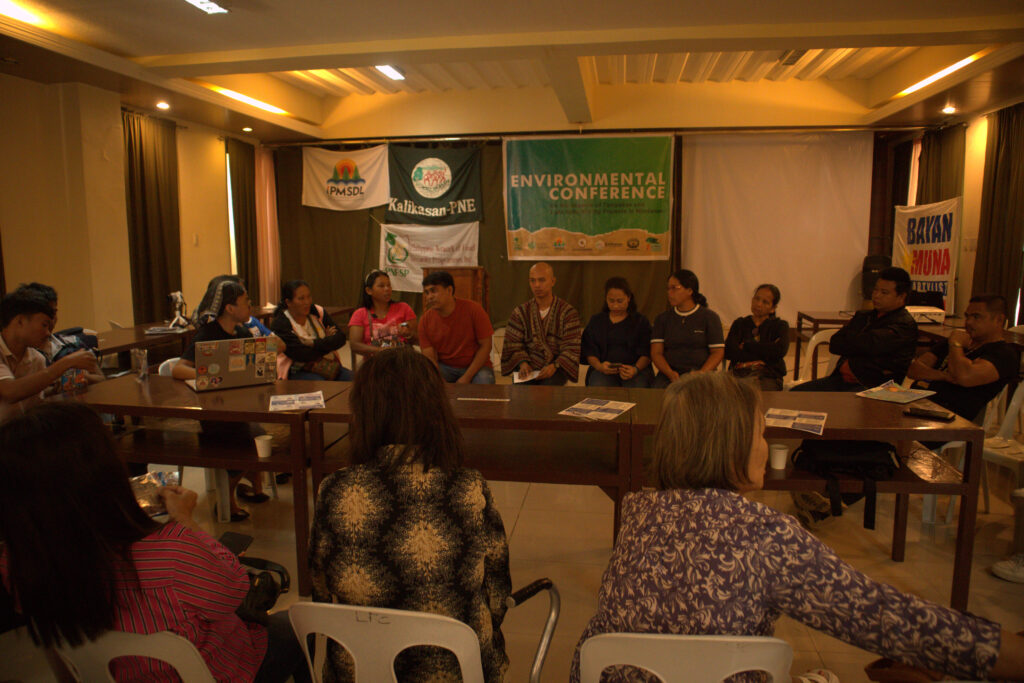
Lumad stories of struggle and resistance
The Lumad Storytelling Panels centered on personal narratives from Indigenous Peoples—particularly the T’boli, B’laan, and T’boli-Manobo communities—who face the direct impacts of large-scale mining operations. Participants shared how their lands, livelihoods, and ancestral territories are threatened by mining projects and the encroachment of corporate interests.
In Tampakan, the T’boli and B’laan communities described the divisive effects of the Sagittarius Mines Inc. (SMI) project. They highlighted coercion tactics, such as private armed groups pressuring them and their communities to sell their lands, as well as the complicity of local and national authorities who prioritize corporate interests over community welfare.
Meanwhile, Lumad communities affected by Lake Sebu mining—comprising primarily T’boli-Manobo communities—recalled the 2017 massacre of eight Lumad members, including Datu Danyan. They emphasized the continuing violence, red-tagging, and environmental destruction caused by mining and agribusiness operations. Participants also reported severe flooding in their villages, a consequence of deforestation and flattened mountain ranges caused by mining activities.
These discussions have underscored the connection between the human rights violations faced by Lumad defenders and the exploitation of ancestral lands. During the conference, resource speakers have shared on the importance of knowing the rights of Indigenous Peoples to their ancestral lands and territories, and most importantly the right of Indigenous to Peoples to Free, Prior, and Informed Consent (FPIC).
Ms. Longid noted concerns over the appointment of IP Mandatory Representatives (IPMR), stating that these representatives often fail to reflect the genuine interests of their communities. She urged Indigenous Peoples to strengthen their consensus-based decision-making processes to safeguard their rights.
The afternoon session featured discussions on the broader environmental and socio-economic impacts of large-scale mining.
Rev. Jay Sichon discussed the updates on the regional mining situation, stressing that displacement of Lumad communities results not only in loss of land but also in the destruction of their culture and environment.
For the Lumad, land is sacred. Land is life. When the Lumad are forcibly displaced from their ancestral lands to make way for mining activities, they lose their ways of living as well as their life. Mountains and forests disappear along with the traditions, histories, and cultural values of the Lumad.
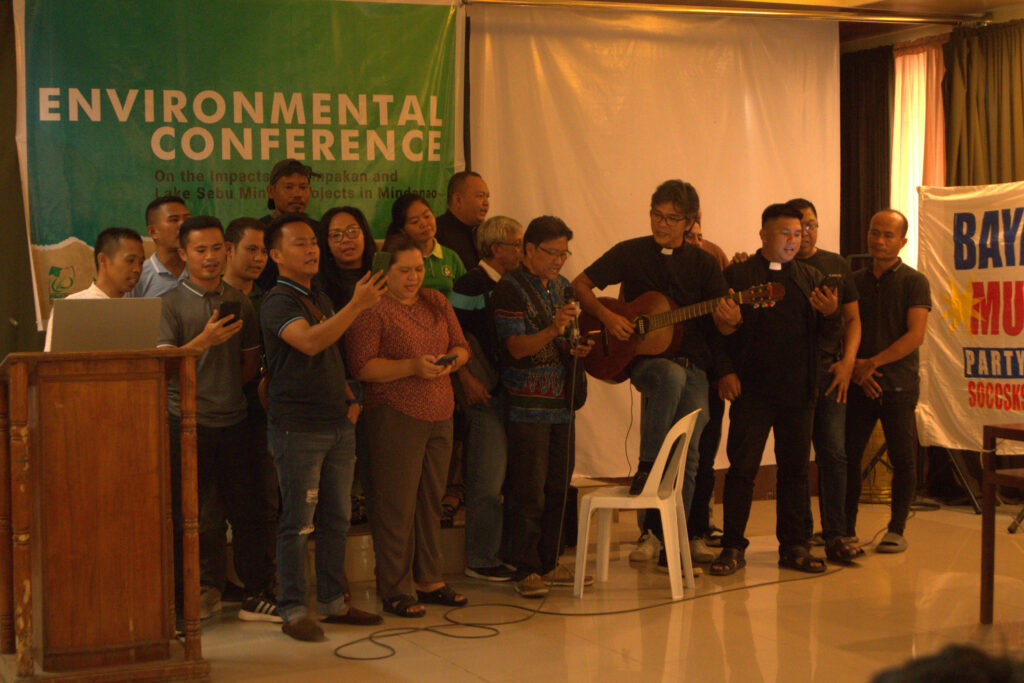
Strengthening solidarity through stories, music, and dance
Solidarity among participants was strengthened through cultural presentations, moderated discussions, and interactive storytelling. Lumad community members and people from other marginalized sectors and organizations were able to engage directly with each other, building empathy and meaningful connections.
T’boli women, from the Women Farmers’ Association, showcased their Indigenous music and dances, symbolizing the deep cultural ties of Lumad communities to their ancestral lands.
The conference culminated with the signing of a Unity Declaration against large-scale mining operations in Tampakan and Lake Sebu. Participants—comprising Indigenous Peoples, human rights defenders, church members, and environmental advocates—pledged their commitment to defending the environment and the rights of IP communities.
It strongly reaffirms the resolve and determination of Lumad communities, allies and advocates to continue the fight for justice, self-determination, and defense of ancestral lands in Mindanao, linking it further with the broad and growing movement for climate and environmental justice.


